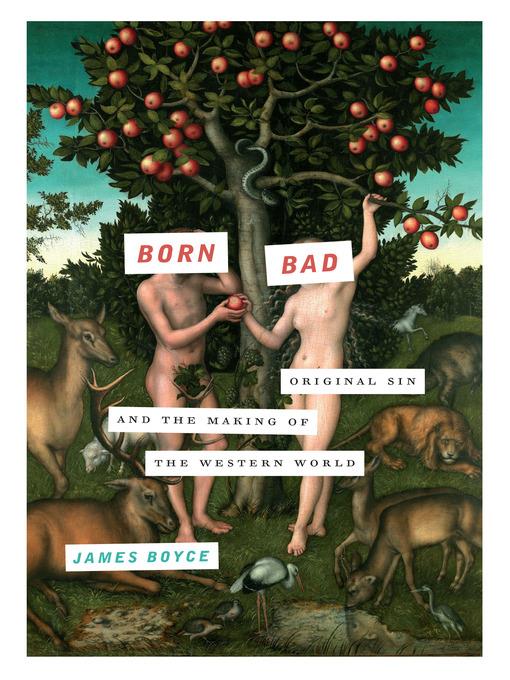
Born Bad
Original Sin and the Making of the Western World
کتاب های مرتبط
- اطلاعات
- نقد و بررسی
- دیدگاه کاربران
نقد و بررسی

Starred review from April 13, 2015
The doctrine of original sin, which has roots in the theological urgings of St. Augustine, has long been a requisite element of Western Christian orthodoxy. Although this teaching has faded from public discourse in recent years, Australian historian Boyce (Van Diemen’s Land) makes a compelling argument for its initial and continuing relevance to Western cultures, influencing government and society as well as religion. Not so much a theological treatise as a history of an idea, this fascinating work by an accomplished scholar is an engrossing study of the development of the Western church and Western society, showing how original sin helped define the political, economic, and social evolution of the West. Boyce leads us into new understandings of some of the central figures in Western culture. Artists, poets, and others take on new life in light of the effects of original sin in their thinking. Especially intriguing are his insights into America’s founding fathers’ reflections on human depravity and their hope for an enlightened democracy, a yearning that shrugs off some of Western Christendom’s orthodoxy. This is an exceptional, highly recommended work, innovative and creative in surprising ways.

April 1, 2015
Intriguing study of how the Christian concept of original sin weaves its way through Western history. Boyce (1835: The Founding of Melbourne & the Conquest of Australia, 2012, etc.) sets out "neither to defend nor condemn the Western creation story, but to show that its influence was not ended by science and secularism." He does so successfully. The author begins with an interpretation of the creation story found in Genesis, which was given voice especially by the fourth-century theologian Augustine. Boyce begins with Augustine, laying the groundwork for an understanding of human nature that permeates to the present day. The author points to a number of dissenting voices-the Pelagian heresy, Celtic Christianity-that eventually gave way to the prevailing Catholic view of the inherited sinful nature of all humanity. Even during the Protestant Reformation, Boyce explains, original sin flourished in the legacy of John Calvin, among others. Moving on, Boyce argues that as the Enlightenment fundamentally changed the West's views on faith, original sin nevertheless remained as a core understanding of basic human nature. "Original sin was not only a religious dogma," he writes. "It also supplied a framework in which to understand what it meant to be human." While thinkers such as David Hume, Adam Smith, and James Madison may have given faith a secondary place, they all saw human nature as fundamentally corrupted and believed society had to be built on that premise. With the advent of capitalism, modern democracy, and evangelical Christianity, original sin was set to play a continuing role into the 21st century. Boyce covers a lot of ground and explores a number of authors in this wide-ranging treatment, and the result is impressive. Readable and comprehensive, the book provides worthwhile food for thought. Boyce successfully illustrates the ability of original sin to dominate Western culture for nearly two millennia.

























دیدگاه کاربران